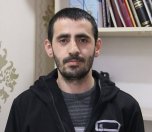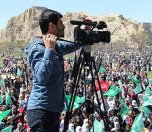Click to read the article in Turkish
Having served 1,137 days behind bars over his phone conversations with his news sources, journalist İdris Sayılğan faced another lawsuit on charge of "terror propaganda" while he was arrested. This second trial continued at the Muş 2nd Heavy Penal Court today (September 16).
Facing charges over seven Facebook messages that he posted from August 2015 to March 2016, Sayılğan and his attorneys attended the hearing from İstanbul via the Audio and Visual Information System (SEGBİS).
While the police checked the IDs of journalists in front of the courtroom before the hearing, journalists were not allowed to take notes in the hearing.
As reported by the Media and Law Studies Association (MLSA), Sayılğan said that he reiterated his previous statements of defence, indicating that he was a journalist and the social media messages in question should be considered within the frame of freedom of receiving and giving news.
"The posts based on which I was previously put on trial have been added to this file, too. In other words, I am standing trial about the same issues for the second time," Sayığan underlined, briefly adding:
"The posts that I shared do not have any comments and do not constitute a crime. I am a journalist and my posts need to be considered within the scope of journalistic activities and the freedom of getting and giving news."
Presenting its written opinion as to the accusations, the prosecutor's office has demanded that journalist İdris Sayığan be penalized on charge of "repeatedly propagandizing for a terrorist organization."
Requesting time to prepare his statement of defense as to the accusations, Sayılğan and his attorneys also requested a reexamination of evidence. The court has accepted the request for additional time and ruled that the next hearing shall be held on December 2, 2020.
Expert opinion by ARTICLE 19
London-based ARTICLE 19, a human rights organization, has prepared an expert opinion regarding the case of İdris Sayılğan. According to the organization's expert opinion, the provisions under which Sayılğan has been charged "do not comply with international and European standards on freedom of expression as they lack sufficient clarity and foreseeability".
The expert opinion presented by ARTICLE 19 has reminded the courts of certain elements specific to the online environment, and stated that online posts "should not be considered indicative of sufficient intent to incite the commission of terrorist acts". Additionally, the organization remarked the fact that "sharing content does not necessarily signal endorsement, let alone incitement to take a particular course of action".
It has concluded that the provisions under which the journalist was charged "do not meet the requirement of legality under European and international human rights law", and restriction of Sayılğan's right to freedom of expression would not be considered necessary in a democratic society.
What happened?
Closed Dicle News Agency (DİHA) reporter Sayılğan was arrested and sent to Trabzon Prison on October 24, 2016 on charges of "membership of a terrorist organization" and "terror propaganda." On January 25, 2019, Sayılğan was sentenced to 8 years and 3 months in prison by the Muş 2nd Heavy Penal Court. The only pieces of evidence the indictment lists are Sayılğan's news stories and his correspondence with his news sources.
The appeal of his attorneys against his arrest was accepted by the 2nd Penal Chamber of the Erzurum Regional Court of Justice and Sayılğan was released from prison on November 27, 2019 after having served 1,117 days (3 years, 1 month) behind bars.
When he was still arrested, another lawsuit was filed against the journalist over his seven Facebook posts from the period of August 2015 - March 2016. In this lawsuit, he was charged with "terror propaganda."
After he was released, he started working again. While reporting on the refugees' passage to Europe through the border to Greece in Pazarkule, Greece, he was taken into custody on February 29, 2020.
As he had an international travel ban, he was taken to the Edirne Courthouse and arrested. After the court indicated that it would reconsider its decision in the event that the news he reported while he was in Edirne was presented as evidence, the attorneys of Sayılğan presented the news to the court.
Sayılğan was released on March 3. (HA/SD)




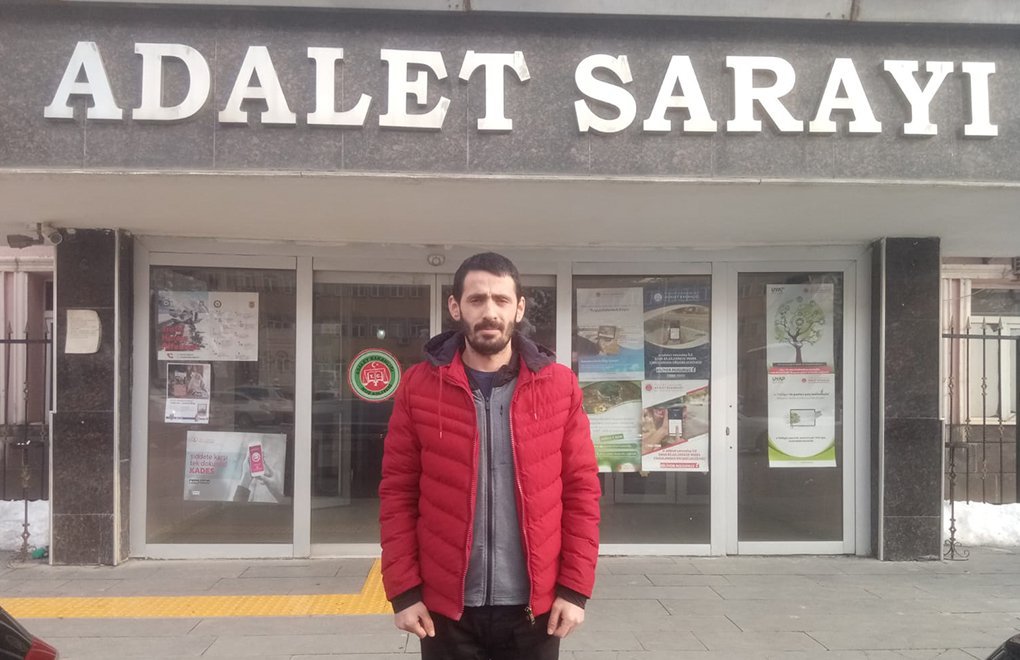
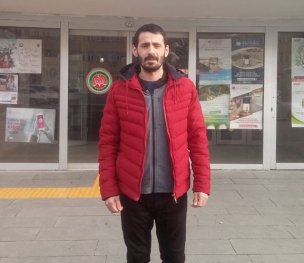
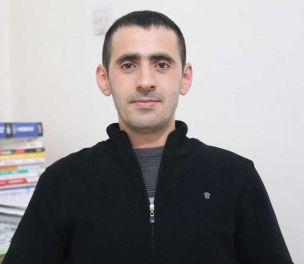
assc.jpg)
